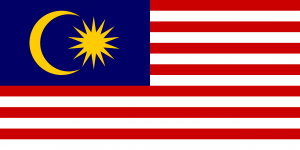Language/Malay-individual-language/Grammar/How-to-Use-Be
Hi Malay (individual language) learners! 😊
In this lesson, we will learn how to use the verb "be" in Malay (individual language). We will look at the different forms of the verb and how to use them in sentences. We will also look at some examples of how to use the verb in context.
The verb "be" is used to describe a state or condition. It is used to describe a person's identity, location, or possession. In Malay (individual language), the verb "be" is conjugated differently depending on the subject of the sentence.
The verb "be" has three forms:
- Present tense: ada
- Past tense: adalah
- Future tense: akan
The present tense form of the verb "be" is used to describe a current state or condition. For example:
- Saya ada di sini. (I am here.)
- Dia ada di sana. (He is there.)
The past tense form of the verb "be" is used to describe a past state or condition. For example:
- Saya adalah seorang guru. (I was a teacher.)
- Dia adalah seorang pelajar. (He was a student.)
The future tense form of the verb "be" is used to describe a future state or condition. For example:
- Saya akan menjadi seorang doktor. (I will be a doctor.)
- Dia akan menjadi seorang ahli perniagaan. (He will be a business expert.)
The verb "be" can also be used to describe a person's identity, location, or possession. For example:
- Saya adalah seorang pelajar. (I am a student.)
- Dia ada di rumah. (He is at home.)
- Dia ada banyak buku. (He has many books.)
To improve your Malay (individual language) Grammar, you can also use the Polyglot Club website. Find native speakers and ask them any questions!
Here is an example dialogue using the verb "be":
- Person 1: Apa khabar? (How are you?)
- Person 2: Saya baik. Anda? (I'm good. And you?)
- Person 1: Saya juga baik. Di mana anda? (I'm also good. Where are you?)
- Person 2: Saya ada di rumah. (I am at home.)
➡ If you have any questions, please ask them in the comments section below.
➡ Feel free to edit this wiki page if you think it can be improved. 😎
Related Lessons
- Plurals
- Give your Opinion
- Future Tense
- Negation
- Pronouns
- Conditional Mood
- Adjectives
- Questions
- Nouns

